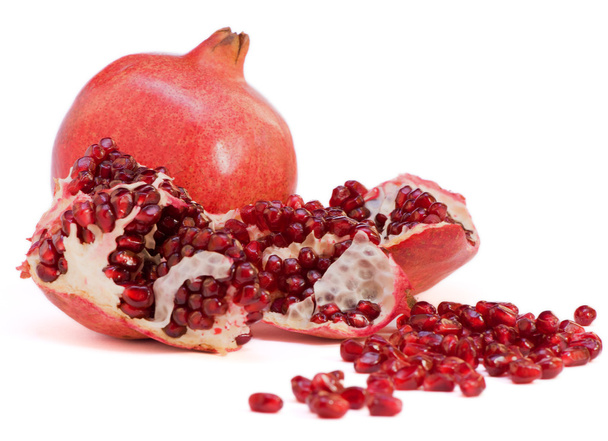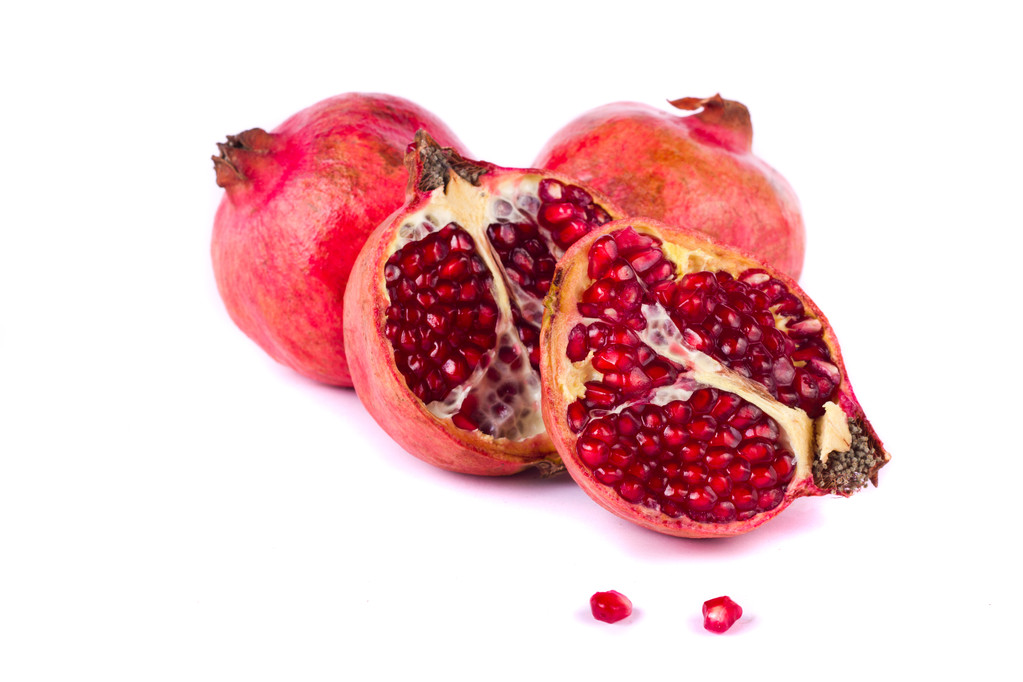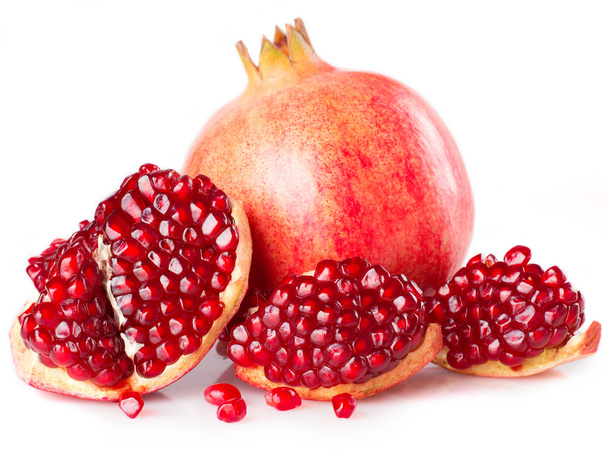Medically Reviewed by:
Name: Ezire Lilian Chinwe
Description: A highly motivated and licensed biomedical scientist with over 7 years of experience, dedicated to advancing healthcare through innovative research and analysis. Expertise includes genetics, microbiology, and immunology with a commitment to staying at the forefront of scientific advancements.
Health Benefits of Pomegranate: A Delicious and Nutritious Fruit
Pomegranate, with its vibrant red seeds and sweet-tart taste, is not only a delightful fruit but also a nutritional powerhouse. It has been revered for its health benefits for centuries, earning its title as a “superfood.” Packed with essential nutrients and beneficial compounds, pomegranate offers a wide range of advantages for your overall well-being. In this article, we will explore the various health benefits associated with this remarkable fruit.
Rich in Nutrients
Pomegranate is a rich source of essential vitamins, minerals, and antioxidants. It contains high levels of vitamin C, vitamin K, folate, and potassium, all of which are vital for maintaining good health. Additionally, pomegranate seeds are a good source of dietary fiber, promoting healthy digestion and aiding in weight management.

Powerful Antioxidant Properties
Pomegranate has strong antioxidant effects. It’s full of punicalagins, antioxidants in its juice and peel. They fight off damaging free radicals in the body. This helps protect cells and lowers the chance of getting chronic diseases like heart disease and cancer.
Promotes Heart Health
Regular consumption of pomegranate has been linked to improved heart health. Studies suggest that pomegranate juice can help lower cholesterol levels, reduce blood pressure, and prevent the buildup of plaque in the arteries. These effects can lower the risk of heart disease and improve overall cardiovascular function.
Supports Digestive Health
The high fiber content in pomegranate promotes healthy digestion. Fiber adds bulk to the stool, preventing constipation and promoting regular bowel movements. It also feeds beneficial gut bacteria, supporting a healthy gut microbiome. Including pomegranate in your diet can contribute to a healthy digestive system.
Boosts Immune System
Pomegranate is a natural immune booster, thanks to its high vitamin C content. Vitamin C helps strengthen the immune system, protecting the body against infections and illnesses. Including pomegranate in your diet during cold and flu season can help ward off common ailments and keep you feeling your best.
Helps Lower Blood Pressure
Research suggests that pomegranate juice could lower blood pressure. This juice reduces systolic and diastolic pressure, which is good for people with high blood pressure. But, you should always talk to a doctor for advice tailored to you.

Anti-Inflammatory Effects
Chronic inflammation is a common factor in many diseases, including heart disease, diabetes, and certain types of cancer. Pomegranate contains powerful anti-inflammatory properties that can help reduce inflammation in the body. Regular consumption of pomegranate may contribute to a lower risk of chronic inflammation-related conditions.
Enhances Brain Function
Pomegranate contains antioxidants that are good for the brain. Research indicates these antioxidants can enhance memory and thinking skills. They might also guard against brain diseases like Alzheimer’s. However, more studies are required to confirm these advantages.
Aids in Weight Management
Pomegranate is a great addition to a weight management plan. It is low in calories and rich in fiber, helping you feel fuller for longer. The fruit’s natural sweetness can satisfy cravings for sugary snacks, making it a healthy alternative to processed treats. Including pomegranate in a balanced diet can support healthy weight loss or maintenance.
Improves Skin Health
The antioxidants in pomegranate play a crucial role in promoting healthy skin. They help protect against damage from environmental factors and may slow down the aging process by reducing the appearance of wrinkles and fine lines. Pomegranate oil, extracted from the seeds, is also used in skincare products for its moisturizing and rejuvenating properties.
Fights Cancer
Pomegranate has become popular because it may help fight cancer. Research suggests that its antioxidants and other compounds can slow down cancer cell growth. This could lower the chances of getting cancers like breast and prostate cancer. But we need more studies to really know how it helps with preventing and treating cancer.
Potential Anti-Aging Effects
The combination of antioxidants, vitamins, and minerals in pomegranate contributes to its potential anti-aging effects. By neutralizing free radicals and reducing oxidative stress, pomegranate may help slow down the aging process, keeping your skin youthful and promoting overall vitality.
Incorporating Pomegranate into Your Diet
You can add pomegranate to your diet in several ways. Eat the fruit’s seeds fresh as a snack or mix them into salads, yogurt, or smoothies. Drinking pomegranate juice is another choice, though you should watch out for extra sugars. Pomegranate molasses is great for marinades and dressings. Try new recipes to enjoy this fruit’s benefits in creative ways.
Conclusion
Pomegranate is not only a delicious and refreshing fruit but also a nutritional powerhouse that offers numerous health benefits. From its antioxidant properties to its potential anti-cancer effects and heart-protective qualities, pomegranate can be a valuable addition to your diet. So, why not indulge in this vibrant fruit and boost your overall well-being?
Frequently Asked Questions
Q1: Can pomegranate juice lower cholesterol? A1: Studies suggest that pomegranate juice may help lower cholesterol levels, thanks to its antioxidant properties.
Q2: Is pomegranate safe for individuals with diabetes? A2: Pomegranate can be included in a diabetic diet in moderation. However, it is important to monitor blood sugar levels and consult with a healthcare professional.
Q3: Can pomegranate prevent wrinkles? A3: Pomegranate’s antioxidants may help reduce the appearance of wrinkles and promote healthier-looking skin, but individual results may vary.
Q4: How much pomegranate should I consume to reap its health benefits? A4: There is no specific recommended amount. Enjoying pomegranate as part of a balanced diet and a healthy lifestyle can provide benefits.
Q5: Are there any potential side effects of consuming pomegranate? A5: Pomegranate is generally safe for most people. However, some individuals may experience allergic reactions or interactions with certain medications. If you have any concerns, consult with a healthcare professional.
Sources:
Good housekeeping www.goodhousekeeping.com/health/diet-nutrition/a41188858/pomegranate-health-benefits/
WebMD www.webmd.com/diet/health-benefits-pomegranates
Medically Reviewed by:
Name: Ezire Lilian Chinwe
Description: A highly motivated and licensed biomedical scientist with over 7 years of experience, dedicated to advancing healthcare through innovative research and analysis. Expertise includes genetics, microbiology, and immunology with a commitment to staying at the forefront of scientific advancements.









